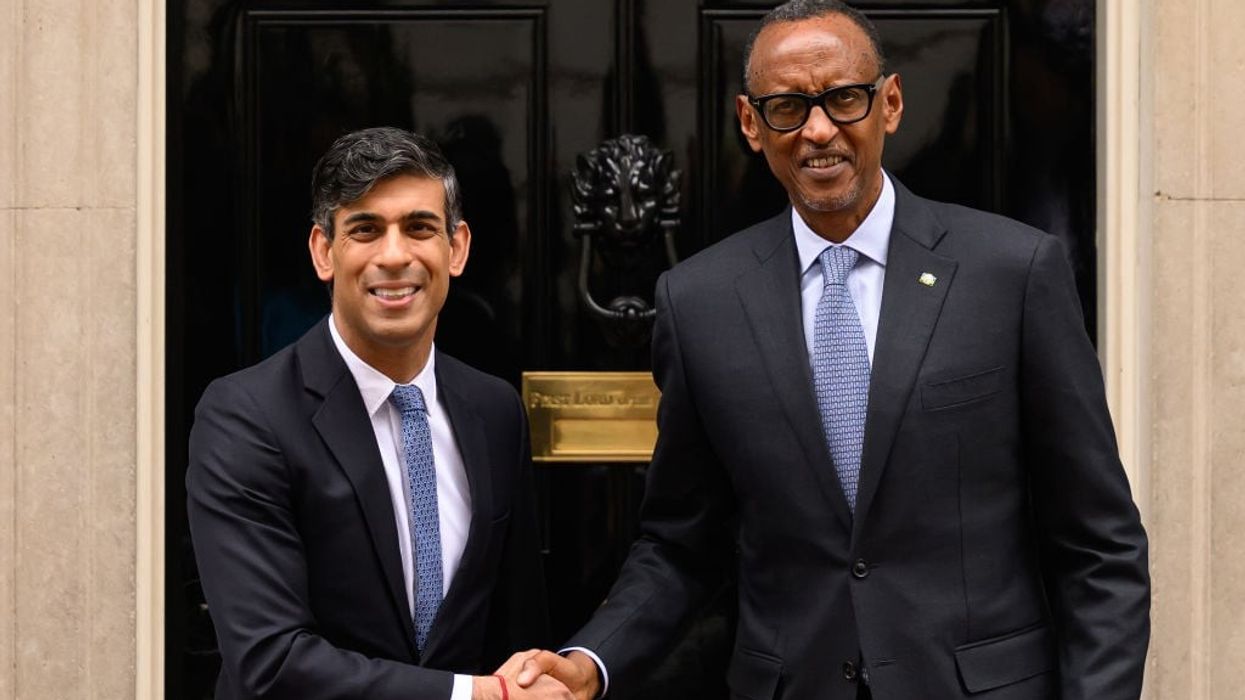THE Rwandan government said Tuesday (9) a multi-million pound migrant deal with Britain that was scrapped by the incoming Labour government on the weekend contained no stipulation about repaying funds.
Britain has already paid Kigali £240 million since the scheme was announced in April 2022, and Rwandan president Paul Kagame had earlier suggested money could be returned if no migrants came -- though he also said there was no obligation.
The new prime minister Keir Starmer announced on Saturday (6) that the plan forged by the previous Tory government to deport asylum seekers to the East African country was "dead and buried".
The deal had already been bogged down in legal challenges in the UK that had prevented it from ever getting up and running.
"The agreement we signed did not stipulate that we should return the money," Rwanda's deputy government spokesperson Alain Mukuralinda told state television.
"Let this be clear, paying back the money was never part of the agreement."
Mukuralinda said the UK had approached Rwanda and requested a partnership, which was "discussed extensively".
"The agreement went to the courts, and it was even amended after the results from the courts," he said.
A spate of legal challenges had dogged the controversial scheme, with the UK Supreme Court ruling in November last year that it broke international law.
Earlier this year, former prime minister Rishi Sunak pushed through legislation that deemed Rwanda a safe country, clearing one hurdle for the flights despite concerns about human rights laws.
"It went to the parliament and eventually became a treaty between two countries. A treaty provides an exit clause," Mukuralinda said.
It follows Rwandan president Paul Kagame's comments in January that the money was "only going to be used if those people will come. If they don't come, we can return the money".
However, he later specified there was "no obligation" to do so.
The Labour said before the July 4 election that it would ditch the scheme, which the Tory government had said was designed to deter migrants trying to get across the Channel to the UK on boats from northern France.
Following the leftwing party's landslide win earlier this month, Starmer announced in his first press conference that the scheme would be scrapped.
"The Rwanda scheme was dead and buried before it started," he told reporters. "I'm not prepared to continue with gimmicks that don't act as a deterrent."
Starmer said previously that Sunak's policy was neither a deterrent nor value for money, instead pledging to tackle the issue "upstream" by smashing the people-smuggling gangs behind the crossings.
Earlier Tuesday, three asylum seekers who brought court action to block the UK's attempt to send them to Rwanda had their cases resolved.
Immigration has become an increasingly central political issue since the UK left the European Union in 2020, largely on a promise to "take back control" of the country's borders.
Rwanda, home to 13 million people in Africa's Great Lakes region, claims to be one of the most stable countries on the continent and has drawn praise for its modern infrastructure.
But rights groups accuse Kagame of ruling in a climate of fear, stifling dissent and free speech.
(AFP)





